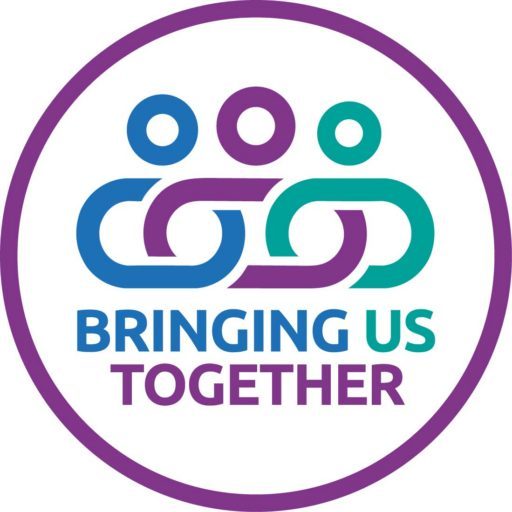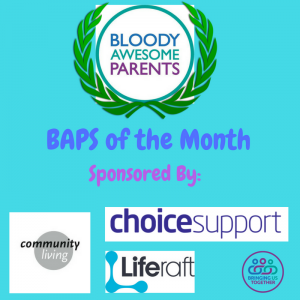Response to the “These are our children” Review
Last month, the results of Dame Christine Lenehan’s “These are our children” Review, commissioned by the Department of Health, were published.
Bringing Us Together’s Response:
 This reponse to the review is on behalf of the families whose heart breaking stories we have heard face to face, over the phone, through social media and during recent workshops, conferences and events we have been part of over the last 6 months.
This reponse to the review is on behalf of the families whose heart breaking stories we have heard face to face, over the phone, through social media and during recent workshops, conferences and events we have been part of over the last 6 months.
All the families have children and young people with Autism and learning difficulties. Some of the children are currently held in various in-patient settings including Assessment and Treatment Units, some have fought to bring their children and loved ones home, some are working hard to prevent their young adults from ending up in a unit.
All the parents have two very important things in common – firstly, they love their children and secondly they never ever want the same thing that has happened to them, and their families, to happen to anyone else.
For this reason we are extremely pleased to read the review and are committed to doing all we can to implement the review and to see action happen.
We are a group that cares and feels passionate in making a difference and we were delighted that Dame Christine Lenehan visited some of our focus groups during the process of her writing the review. Each time she met the families she explained the work that she was doing and was clearly dedicated to involving families in taking this forward.
We have distributed the report amongst the Stronger Together families who came together in June 2016 to share their stories and who have since been involved in reviewing and changing policy together with NHS England.
What the families have said:
Some of the comments we have received are below:
One of the biggest issues in the Care and Health sectors is the fact that there are so many private organisations involved. This particularly becomes an issue when children and young people are detained under the Mental Health Act because there is a clear conflict of interests when the hospital detaining our children stands to make a profit from ‘heads on beds’. We would suggest that private sector hospitals are no longer allowed to detain people under the MHA without an overview from an independent NHS psychiatrist.
All too often, recommendations such as those in this report lead to Local Authorities and the NHS producing their own local report which then ends up in a drawer somewhere and does not lead to a real and effective change in thinking on the ground. If the people, ideas and money are there, then what is lacking is accountability. We do not have true accountability for inaction by public bodies. We would suggest that every single LA and CCG be required to outline its current policy and provision for our children and submit plans for any necessary changes to bring its services into line with this report. Regular reviews of the plans should be held by a body that has the authority to challenge delays or inadequate responses and require that specific change happens within an identified timescale.
An Education, Health and Care Plan should be a comprehensive document, central to a child’s needs, development and support, with equal input from the three sectors involved. In my experience, it has essentially been seen as a replacement for a Statement of Special Educational Needs. There should be regular and questioning reviews of outcomes and the journey towards them.
Areas of best practice should be identified and used to develop training schemes for areas that are struggling to implement change. Secondment of staff could also be considered.
There is a massive funding difference between Children and Adult Services, yet needs do not miraculously change or reduce on someone’s 18th birthday. There is a real risk of continuity of good care and education being compromised if this is not addressed for vulnerable young people.
We welcome the emphasis in this report on greater involvement for and advice to families and carers. This should be an equal partnership based on trust and without threats of ‘taking the child into care’ or taking families to court if their only ‘crime’ is to disagree with the authorities. Furthermore there should be complete transparency regarding all decisions by public bodies.
Families are keen that there is action to stop the lack of planning for future needs looking towards transition. It’s worrying that the government seem to be ignoring the crisis in community care which is growing so dare we think they might take any action. What does it take as we look at the slowness of action on Winterbourne and the drift towards so-called “community” congregated settings which might feel little different to ATUs. ..?
In conclusion:
Bringing Us Together and the Stronger Together families hope to continue to be involved in the work around the review to ensure that both the young people and their families have a strong voice in the prevention of further unnecessary and avoidable admissions to in-patient settings.
By bringing families together to stay strong, network with one another, share information, take part in true co-production within local Transforming Care partnerships and NHS England, we feel that this will avoid any further families getting to crisis point.
Debs is one of the co-founders and Directors of Bringing Us Together. She is mum to three child with a variety of SEND and has a great husband.







